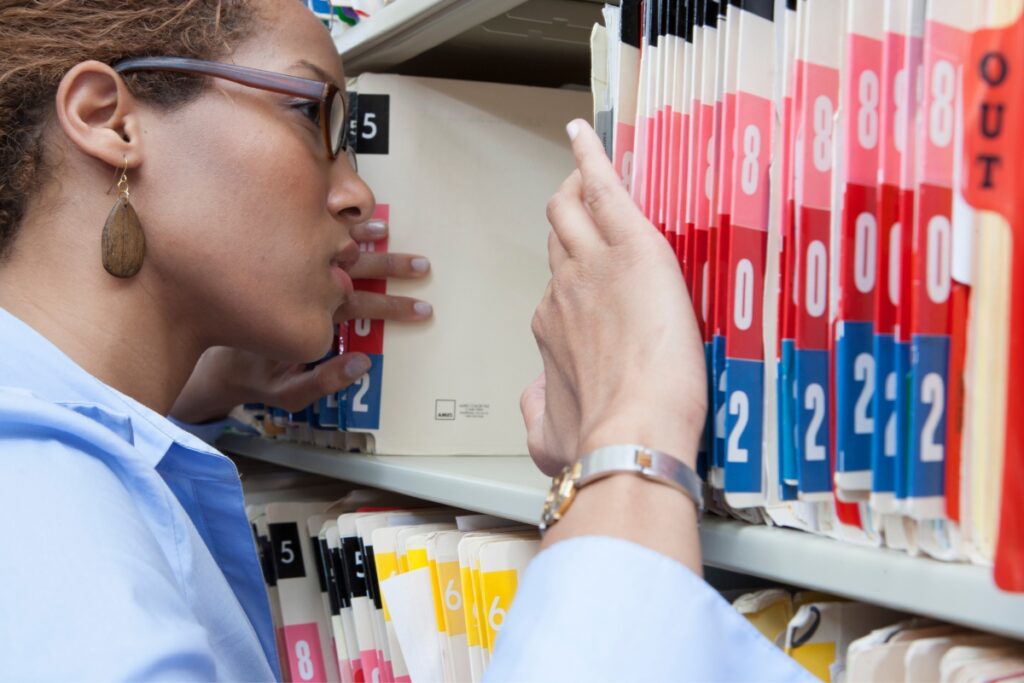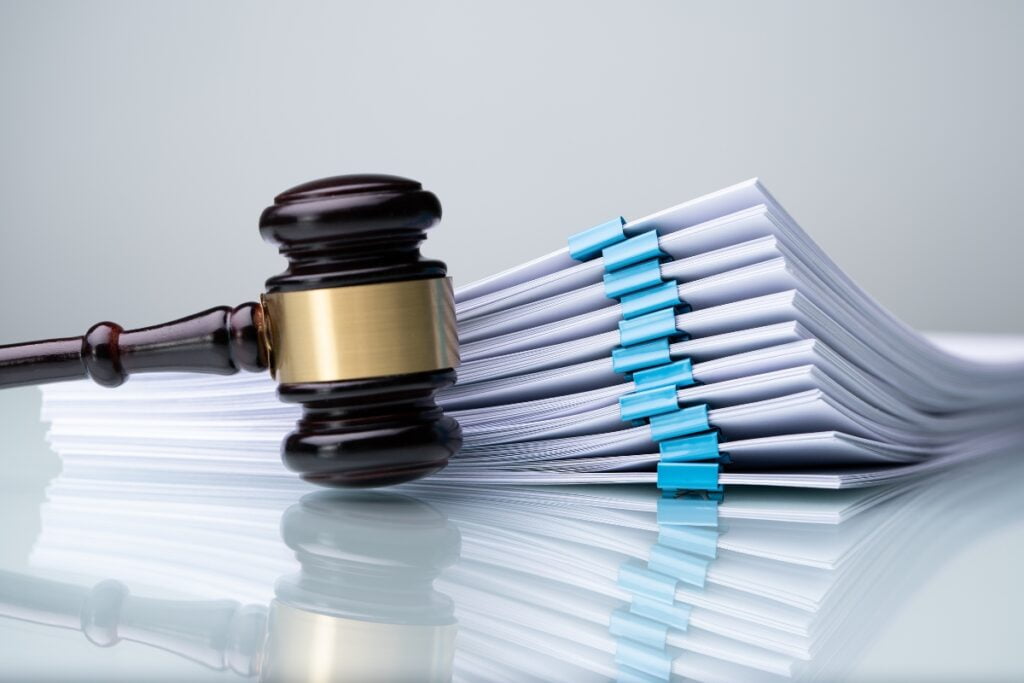In today’s digital age, where information is just a few clicks away, we often find ourselves immersed in a sea of data. But how do we separate fact from fiction? How can we uncover the truth buried beneath layers of secrecy? One powerful tool that can help us unravel the mystery is court records investigation. Court records are like hidden treasure troves, waiting to be discovered and explored.
They contain a wealth of information, providing us with a glimpse into the past and shedding light on the present. From criminal cases to civil disputes, court records document the intricacies of our legal system, capturing the stories of both the accused and the accusers.
In this article, we will explore the fascinating world of court records investigation. We will delve into the techniques and strategies employed by investigators to unearth hidden secrets and unveil the truth. So grab your metaphorical magnifying glass, put on your detective hat, and join us on this thrilling journey through the labyrinthine corridors of court records. Get ready to discover a whole new dimension of investigation, where every page holds a clue and every line has a story to tell.
Court Records: Your Key to Uncovering Hidden Truths
The Importance of Court Records Investigation

Court records hold immense importance when it comes to investigative work. Whether you are a journalist, a private investigator, or simply an individual seeking the truth, delving into court records can be a game-changer. These documents are a treasure trove of information, providing insights into legal proceedings and shedding light on hidden truths.
One of the primary benefits of court records investigation is the ability to uncover valuable evidence. These records contain detailed accounts of trials, deposition transcripts, witness testimonies, and other vital information that can be crucial in building a case. By thoroughly examining these documents, investigators can find the missing pieces of the puzzle, leading to a deeper understanding of events and potential breakthroughs.
Moreover, court records investigation allows for a comprehensive analysis of an individual’s legal history. These records provide a comprehensive overview of an individual’s involvement in past lawsuits, criminal charges, and civil disputes. This information can be crucial when evaluating someone’s credibility, character, or history of illicit activities. Employers, journalists, and even individuals seeking personal relationships can benefit from this valuable insight.
Court records can also provide valuable information for journalists and researchers. Reporters often rely on court records to verify facts, uncover corruption, or expose injustices. By scouring through these records, journalists can find supporting evidence, track patterns of behavior, and provide an accurate account of events. This type of investigation can bring attention to critical issues and hold individuals or organizations accountable.
Furthermore, court records investigation can be a powerful tool for genealogists and historians. These records offer a glimpse into the lives of our ancestors, documenting important events such as births, deaths, marriages, and property transactions. They can provide valuable clues and help piece together family histories that would otherwise be lost to time. By exploring court records, individuals can connect the dots and gain a deeper understanding of their heritage.
Exploring the Types of Information Found in Court Records

One of the most fascinating aspects of legal proceedings is the wealth of information that can be found within court records. These documents, often overlooked or forgotten, hold a treasure trove of details about the legal system, individuals, and society as a whole.
- Case Details: Court records provide comprehensive information about individual cases. This includes the names of the parties involved, the date and location of the trial, and the presiding judge. These records offer a firsthand account of the legal proceedings, allowing researchers to gain insights into the intricacies of the case.
- Legal Arguments: Within court records, one can find the legal arguments put forth by both the prosecution and the defense. These arguments shed light on the strategies employed by each side, the evidence presented, and the intricacies of the law. By analyzing these arguments, legal scholars and researchers can gain a deeper understanding of the legal system and its application in specific cases.
- Verdicts and Judgments: Perhaps the most crucial piece of information found in court records is the verdict or judgment rendered at the end of a trial. This provides a conclusive determination of guilt or innocence, as well as any subsequent penalties or sentencing. Studying these verdicts can help researchers explore the effectiveness and fairness of the legal system while providing valuable insights into judicial decision-making.
- Witness Testimonies: Court records often contain transcripts or summaries of witness testimonies given during a trial. These testimonies can offer a firsthand account of events, providing valuable eyewitness perspectives. Researchers can analyze these testimonies to reconstruct the sequence of events and gain a deeper understanding of the case at hand.
- Legal Precedents: Court records also serve as a repository of legal precedents, which are rulings that establish a legal principle or rule. These precedents shape future legal decisions and guide the interpretation of the law. By examining court records, legal scholars can identify and analyze important legal precedents that have influenced the development of the legal system over time.
- Social and Historical Context: Court records provide a fascinating glimpse into the social and historical context in which legal proceedings take place. They can reveal societal attitudes, cultural norms, and prevailing beliefs of the time. By examining court records from different eras, researchers can gain valuable insights into the evolution of society and the law.
Techniques and Strategies for Conducting Effective Court Records Investigation

Court records investigation is a critical process that requires effective techniques and strategies to ensure accurate and thorough results. Whether you are an attorney, a private investigator, or an individual conducting personal research, understanding the best practices for conducting court records investigation can greatly enhance your success rate.
One of the first steps in an effective court records investigation is to gather as much information as possible about the case or individual you are investigating. This includes obtaining the full name, date of birth, and any other identifying details that could help narrow down the search. By having all the necessary information at hand, you can ensure that your search is focused and targeted, saving time and effort.
Once you have gathered the necessary information, the next step is to determine which court records to search. Depending on the nature of your investigation, you may need to search federal, state, or local court records. It is crucial to understand the jurisdiction and scope of the case to ensure that you are accessing the relevant court records. Additionally, utilizing online databases and resources can streamline the search process, providing convenient access to a wide range of court records.
When conducting a court records investigation, it is essential to be organized and systematic. Creating a checklist or a spreadsheet can help you keep track of the records you have reviewed, the information you have gathered, and any relevant findings. This organized approach ensures that no crucial details are overlooked and facilitates easy reference later on.
As you delve into the court records, it is important to pay attention to detail and thoroughly analyze the information you uncover. Look for inconsistencies, contradictions, or any other factors that may affect the credibility of the records or the individuals involved. Cross-referencing information across different sources can help verify the accuracy of the records and provide a more comprehensive understanding of the case.
In addition to traditional court records, it is beneficial to explore supplementary sources of information. This may include conducting background checks, searching public records, or reaching out to witnesses or individuals with knowledge of the case. By broadening your scope, you can gain valuable insights and potentially uncover additional evidence that could strengthen your investigation.
Lastly, confidentiality and ethical considerations play a significant role in court records investigation. Always ensure that you are abiding by legal and ethical guidelines while accessing and utilizing court records. Respect privacy and confidentiality rights, and only use the information obtained for lawful purposes.
Unearthing Past Legal Actions: How Court Records Can Reveal Red Flags

Court records are a valuable resource for uncovering past legal actions and revealing potential red flags. Whether you’re conducting a background check on an individual or researching a company’s history, court records can provide key insights into someone’s legal history. By delving into court records, you can gain a deeper understanding of a person or entity’s involvement in legal matters, including lawsuits, criminal charges, bankruptcies, and more.
When it comes to conducting a thorough investigation, court records are an essential tool. They offer a comprehensive view of an individual’s legal history, allowing you to identify any patterns of behavior or recurring legal issues. For example, if you’re considering entering into a business partnership, a review of court records can help you assess the potential risks and liabilities associated with that individual.
Moreover, court records can reveal red flags that may not be apparent through other means. They provide an unbiased account of an individual’s involvement in legal disputes or criminal activities, allowing you to make informed decisions. For instance, if you’re hiring for a sensitive position or considering a potential tenant, reviewing court records can help you identify any previous criminal convictions or lawsuits that could pose a risk.
By analyzing court records, you can also uncover hidden connections or associations. For instance, if you’re investigating a company’s financial stability, court records can reveal any ongoing legal battles, debt collections, or judgments against the company. This information can be crucial in evaluating the company’s viability and potential risks before engaging in any business transactions.
When it comes to accessing court records, there are various resources available. Many court systems have online databases that allow public access to court records. Additionally, there are third-party services that specialize in aggregating court records from different jurisdictions, making it easier to conduct comprehensive searches.
Keep in mind that court records are not always exhaustive. Some records are considered sealed or inaccessible to the public, especially when it comes to cases which involve minors or sensitive information. Therefore, it’s essential to understand the limitations of court records and supplement your research with other sources of information when necessary.
Uncovering Hidden Assets: Using Court Records in Financial Investigations

Court records are public documents that contain a wealth of information related to legal cases, including divorce proceedings, bankruptcy filings, civil lawsuits, and criminal prosecutions. These records can provide valuable insights into the financial activities and assets of individuals or businesses involved in these cases.
One of the primary ways court records can be utilized in financial investigations is by examining divorce proceedings. During a divorce, financial disclosures are typically required, revealing information about assets, debts, income, and expenses. By carefully analyzing these records, investigators can identify any discrepancies or hidden assets that might have been concealed during the divorce proceedings.
Bankruptcy filings are another goldmine of information for financial investigators. When individuals or companies file for bankruptcy, they are required to disclose their assets and liabilities. By scrutinizing these records, investigators can assess the true financial standing of the individuals or businesses in question, as well as determine if there have been any attempts to conceal or transfer assets prior to the bankruptcy filing.
Civil lawsuits can also provide valuable insights into a person or company’s financial situation. By examining court records related to civil lawsuits, investigators can uncover information about assets, debts, settlements, and judgments. This information can help determine the financial stability and credibility of the individuals or businesses involved and uncover any hidden assets that may be relevant to the investigation.
Court records relating to criminal prosecutions can be particularly useful in financial investigations. These records often contain information about seized assets, restitution orders, fines, and other financial penalties imposed on individuals convicted of financial crimes. By analyzing these records, investigators can identify any hidden assets that might have been acquired through illegal means.
How Court Records Can Aid in Background Checks and Employment Screening

Court records play a crucial role in background checks and employment screening. These records provide valuable insights into an individual’s past, helping employers make informed decisions when hiring new employees. Through a thorough investigation of court records, employers can uncover hidden secrets and unveil the truth about a potential employee’s character and history.
When conducting background checks, court records act as a reliable source of information. They contain details about criminal convictions, civil lawsuits, bankruptcies, and other legal matters. By reviewing these records, employers can determine if an applicant has a history of criminal activity or financial irresponsibility.
Employment screening is essential for maintaining a safe and productive work environment. By examining court records, employers can identify any red flags that may indicate a potential risk. For example, if an applicant has a history of violent behavior or theft, it may not be suitable to hire them for a position that requires trust and responsibility.
Court records can also shed light on an individual’s integrity and credibility. For instance, if an applicant has been involved in multiple lawsuits related to fraud or dishonesty, it raises concerns about their trustworthiness. Employers need to ensure that they hire individuals with a solid reputation and ethical conduct.
In addition to providing information about an applicant’s past, court records can also verify the accuracy of the information provided in their resume or job application. Sometimes, individuals may falsify their qualifications or hide important details about their background. By cross-referencing the information with court records, employers can verify the authenticity and integrity of an applicant’s claims.
It is important to note that employers should handle court records with utmost care and adhere to legal and ethical guidelines. Access to court records is typically regulated, and employers should only use this information for legitimate purposes and within the boundaries of the law. Failure to do so can lead to legal consequences and damage the reputation of the organization.
Overcoming Challenges in Court Records Investigation

When it comes to conducting a court records investigation, there are several challenges that one may encounter. However, with the right approach and resources, these challenges can be overcome effectively.
One of the main challenges in court records investigation is accessibility. Not all court records are readily available to the public, and some may require special permission or a fee to access. This can make it difficult for investigators to obtain the necessary information for their case. However, there are ways to navigate this challenge. Utilizing online databases or visiting local courthouses can provide access to a wide range of court records. Additionally, reaching out to legal professionals or hiring a private investigator who specializes in court records investigations can help navigate the complexities of accessing these records.
Another challenge is the sheer volume of information contained in court records. Court records can be extensive, with multiple documents and cases to sort through. This can be overwhelming and time-consuming for investigators. To overcome this challenge, it is important to have a systematic approach in place. Prioritize the specific information needed for the investigation and develop a strategy for efficiently reviewing the relevant court records. Utilizing search filters and keywords can also help narrow down the search and retrieve the necessary information more efficiently.
Accuracy and reliability of court records can also pose a challenge. Court records may contain errors or incomplete information, which can hinder the investigation process. It is crucial to verify the information obtained from court records through multiple sources and cross-referencing. This can help ensure the accuracy and reliability of the information used in the investigation.
Privacy concerns and confidentiality issues are another challenge in court records investigation. Some court records may contain sensitive information or personal details that need to be handled with care. It is important to adhere to legal and ethical guidelines when handling such information. This includes obtaining the necessary consent and ensuring the information is used only for legitimate investigative purposes.
Conclusion: The Power of Court Records in Unveiling Truth and Seeking Justice
Court records hold immense power when it comes to uncovering the truth and seeking justice. These records provide a wealth of information that can shed light on past events, reveal hidden details, and help resolve legal disputes. From criminal cases to civil proceedings, court records play a crucial role in our legal system.
At Impeccable Background Solutions, we are committed to revealing the truth through comprehensive court record searches, ensuring that your company’s reputation is in trustworthy hands. Our premier background check services go beyond the surface, providing you with confidence in your hiring and screening processes.
We delve into court records, leaving no detail unexamined, as we meticulously investigate every aspect of a candidate’s background. Our dedication to precision and attention to detail sets us apart, guaranteeing that you receive the most accurate and up-to-date information available.
Take charge of your firm’s hiring process and fortify the integrity of your organization by relying on Impeccable Background Solutions. Connect with us today through our online channels or by giving us a call at 404-796-8419. Discover the peace of mind that comes from partnering with a reliable service provider committed to uncovering the truth.





